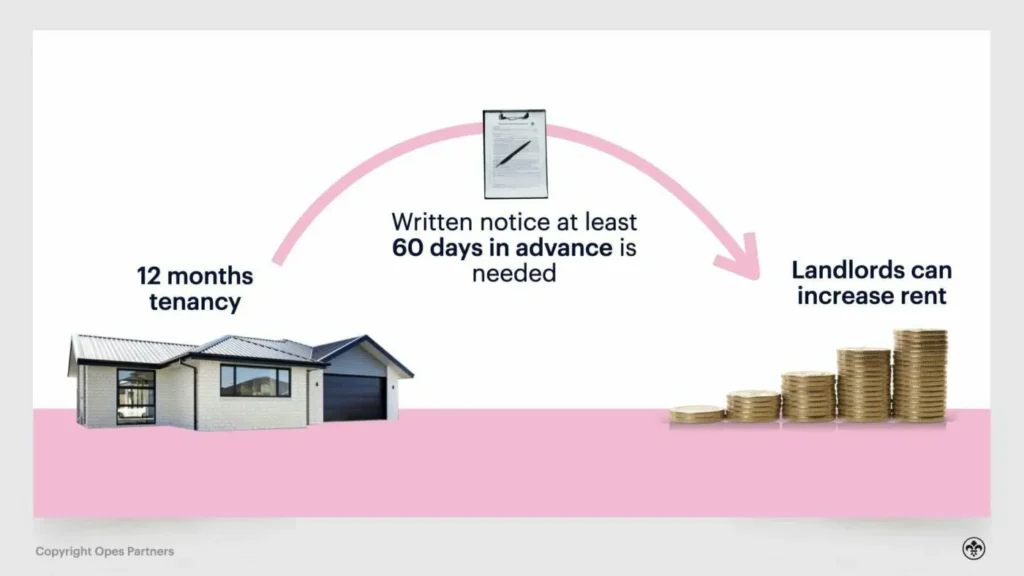As we all navigate through these challenging economic times in New Zealand, are you considering adjusting the rent for your properties? The current New Zealand residential law provides a framework to ensure fairness for both tenants and landlords, protecting tenants from sudden, unreasonable hikes while allowing landlords to make adjustments that reflect current market conditions.
To ensure we all stay compliant and considerate, here's a brief overview of the guidelines:

1. Notice Period for Rent Increases:
- For most tenancies, you much provide a minimum of 60 days' notice before a rent increase.
- For boarding house tenancies, the notice period is 28 days.
- This notice period must take into account the tenant's service period, ensuring that long-term tenants receive ample notice.
2. Frequency of Rent Increases:
- Rent cannot be increased within 12 months of the start of the tenancy or the last rent increase. This rule offers tenants stability and peace of mind, preventing frequent rent hikes.
3. Providing Written Notice:
- Any rent increase must be communicated in writing.
- The notice should clearly state the new total rent amount and the date it becomes payable. For example, "Your new rent will be $1,200 per month, effective from August 23, 2024," rather than "Your rent will increase by $50 per month." This clarity helps tenants understand their new financial obligations without confusion.
4. Handling Lease Breaks and Assignments:
- If a lease is broken within 12 months, you may advertise the property at a higher rent if justified by market conditions. However, if an assignee tenant takes over the same tenancy, the rent cannot be increased within 12 months of the previous increase. This policy ensures that rent increases are fair and consistent across tenancies rather than properties.
5. Fixed-Term Tenancies:
- Rent increases during fixed-term tenancies are only allowed if the tenancy agreement includes a specific rent increase clause. Landlords must follow this clause to lawfully increase the rent.

While adjusting rents might be necessary to cover rising costs, it's also important to remember the financial strain many tenants are experiencing due to the current economic situation. Significant rent increases could lead to higher vacancy rates and increased tenant turnover. Striking a balance between covering costs and maintaining tenant satisfaction is crucial.
As fellow landlords, let's work together to ensure our tenants feel secure and valued in their homes. By following these guidelines and showing empathy during these times, we can foster a sense of community and mutual respect that benefits everyone.


